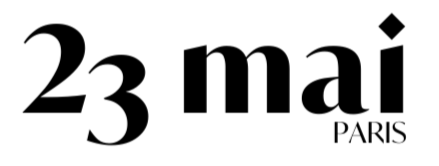
Breastfeeding law in France
Hello, dear powerful 23 mai Paris tribe! Today we're going to tackle a subject that is both deeply personal and of considerable public importance: your rights as a breastfeeding mother in France. Perhaps you're counting down the days until you return to work and feeling a mixture of nervousness and longing, or perhaps you've felt uncomfortable breastfeeding in a café because of an indiscreet glance. We want you to know something very important: you're not alone, and the law is on your side.
At 23maiparis.com, we don't just create clothes that make you feel comfortable and beautiful, we also want to empower you with information. Because knowing your rights isn't just about knowing the law, it's also about having a shield, a tool, and a voice to protect your breastfeeding and your baby's well-being. So, make yourself a cup of tea, sit back, and join us to discover, in clear and simple language, what French law says about this act of love.
Why is it so important to talk about laws and breastfeeding?
Because breastfeeding, recognized by the WHO as the standard of excellence in infant nutrition, doesn't take place in a bubble. It takes place in the real world: at work, in parks, in restaurants, at home. And for a mother to be able to breastfeed for as long as she and her baby want, she needs a support network. The law is an essential part of this network.
Getting to know her brings you :
- Confidence: to breastfeed in public without fear.
- Safety : to demand proper conditions in your workplace.
- The power of negotiation : to engage in informed dialogue with your employer.
- Peace of mind: to focus on what really matters: enjoying the bond with your baby.
Your right to feed: breastfeeding in public places
Let's start with one of the most worrying topics of all. Can I breastfeed in a shopping mall? In a restaurant? In a park? The answer is a resounding YES.
In France, breastfeeding in public is a fundamental right protected by lawSeveral federal and state laws protect this act. The General Health Law and the General Law on the Rights of Children and Adolescents recognize the right to health and nutrition, of which breastfeeding is a cornerstone. In addition, in many entities, such as the city of Paris, there are specific laws that explicitly prohibit restricting or conditioning the act of breastfeeding in any public space.
What does this mean in practical terms?
- No one can force you to cover yourself.
- No one can ask you to retire to the bathroom or a secluded area to breastfeed.
- No one can deny you access to an establishment because you're breast-feeding.
We're well aware that there's the law, and then there's the stares or inappropriate comments. But knowing that the law has your back gives you the strength to hold your head high, smile and continue feeding your baby with all the love and serenity in the world.

Your rights in the workplace
For many, the return to work is the most critical time for breastfeeding. This is where the law becomes your main ally. The rights of working mothers in France are mainly enshrined inArticle 123 of the Constitution and the Federal Labor Act (LFT).
We'll take you through them step by step:
1. Maternity leave (disability due to maternity)
- What is maternity leave? This is the compulsory rest period to which you are entitled before and after giving birth.
- Duration: The law provides for a total of 12 weeks (84 days). Traditionally, these were divided into 6 weeks before and 6 weeks after childbirth.
- Flexibility (very important!): Thanks to recent reforms, you now enjoy greater flexibility. With your doctor's and employer's permission, you can postpone up to 4 of the 6 weeks of prenatal leave after childbirth. This would allow you to enjoy up to 10 weeks with your baby before returning to work, valuable time to establish breastfeeding.
2. The breast-feeding period (breast-feeding leave)
- What is breastfeeding? Once your maternity leave is over and you return to work, the law grants you a special period of time to continue breastfeeding or expressing milk.
- Duration: This entitlement extends for six months from your return to work.
- Options (article 170, section IV of the LFT): The law gives you two options. The choice is yours, not your employer's!
- Option A: two additional breaks per day. You are entitled to two half-hour breaks during your working day to breastfeed or express milk.
- Option B: Reduced working day. You can choose to combine these two breaks and reduce your working day by one hour each day. This means you can arrive half an hour later and leave half an hour earlier, or arrive an hour later and leave an hour earlier.
3. The lactation room
- What is this? This is a physical space where you can exercise your right mentioned in the previous point.
- The law (warning!): Federal labor law stipulates that employers are obliged to provide an adequate and hygienic space for breastfeeding women to breastfeed or to express and store their milk.
- How should this space look? The law is clear. It's not a bathroom! It's not a storeroom! It must be a place :
- Private: with a comfortable, safe seat so that no one disturbs you.
- Hygienic : clean, safe and away from hazardous or contaminated areas.
- Suitable: Ideally, it should be equipped with a comfortable chair, a side table, outlets for electric breast pumps and, preferably, a refrigerator for storing expressed milk.
At 23maiparis.com, we know that the logistics of expressing milk at work can be challenging. That's why we've designed our nursing clothes. Imagine arriving at the nursing room wearing one of our Breastfeeding dresses, which allow you quick and discreet access without having to undress. Or with one of our Breastfeeding t-shirts, whose opening system greatly facilitates the process. Feeling comfortable and wearing suitable clothing reduces stress and helps you express milk more effectively.
What can I do if my company isn't complying with the law? Steps to take
Unfortunately, not all employers know or respect these laws. If you find yourself in this situation, don't despair! Here's a roadmap for acting assertively and constructively:
- Get informed and get ready: that's what you're doing. Know your rights well, quoting sections of the law if necessary.
- Discuss proactively: Make an appointment with your line manager or human resources department. Explain your situation calmly and professionally. Sometimes, non-compliance with the law is due to a simple lack of awareness. You can present this as an opportunity for the company to improve and support its employees.
- Make your request in writing: if dialogue doesn't work, formalize your request in writing. Ask that your right to breastfeed be respected and that a suitable breastfeeding room be made available, citing article 170 of the LFT. Keep a stamped copy or acknowledgement of receipt.
- Look for allies: Talk to other mothers in your company. A joint request may carry more weight.
- Seek legal advice: if the company refuses to comply, you can ask for help. The Federal Labor Defense Office (PROFEDET) offers free legal advice and representation to workers.
Make the law work for you: practical tips 23 mai Paris
- Plan your return: Before your leave ends, discuss with your employer how you intend to exercise your right to breastfeed. Deciding whether you'll take the two breaks or the full hour will help you organize your logistics.
- Choose smart clothing: that's where we excel! Investing in a few good quality nursing clothes will change your life. A nursing sweatshirt for air-conditioned days, or a Breastfeeding t-shirt to match your blazer, will let you breastfeed quickly and uncomplicatedly.
- Prepare your "breastfeeding at work kit": your breast pump, storage bags, a small cooler, breast shields, a small bottle of water and a healthy snack. Having everything at hand will give you peace of mind.
- Build your own support network: at work and outside of work. Connecting with other moms who have been through the same thing is extremely valuable. You can find other topics of support and interest on our blogs 23 mai Paris.
You're a mom with rights. Exercise your power!
Dear Mum 23 mai Paris, we want you to keep this message in mind: your decision to breastfeed is precious and protected. Laws are not just words on paper, they are society's recognition of the vital importance of your work. They are the structure that must support you so that you can support and nurture your baby.
Knowing your rights gives you the power to dialogue, to demand, to educate others and, above all, to live your breastfeeding with the freedom and dignity you deserve. Every time you breastfeed in public with confidence, every time you use your breastfeeding time at work, you pave the way for the mothers who will follow you.
At 23maiparis.com, we support you every step of the way. From information that empowers you to take action to clothing that fits you perfectly and makes your life easier. You are strong, you are capable, and you have rights. Celebrate them and exercise them!
Have you already exercised your breastfeeding rights? What advice would you give to a mom about to go back to work? Share your wisdom in the comments! Your story could be the light another mom needs.
With all the admiration and support of your tribe,
The team 23maiparis.com
If you are breastfeeding, here are some of our nursing clothes that may interest you:
T-shirts d'allaitement
T-shirts d'allaitement imprimés
T-shirts d'allaitement personnalisés
T-shirts d’allaitement basiques
Hauts d’allaitement personnalisables
Pulls d'allaitement
Sweat-shirts d'allaitement
Pulls d'allaitement maille
Débardeurs d'allaitement
Robes d'allaitement
Pyjamas d'allaitement
vêtements d'allaitement
Vêtements de maternité et d'allaitement
Vêtements d'allaitement à ouverture sur le côté
Vêtements d'allaitement grande taille
Vêtements d'allaitement d'été
Vêtements d'allaitement chauds
Vêtements d'allaitement brodés
Vêtements d'allaitement d'hiver
Vêtements d'allaitement confortables
Vêtements d'allaitement en coton
Vêtements de grossesse et d'allaitement
Vêtements d'allaitement originaux
Vêtements d'allaitement pas chers
Vêtements d'allaitement personnalisés
Vêtements d'allaitement en soldes
Vêtements d'allaitement à manches courtes
Vêtements d'allaitement à petit prix
Vêtements d'allaitement à zip
Vêtements d'allaitement abordables
Vêtements d'allaitement amples
Vêtements d'allaitement beiges
Vêtements d'allaitement blanc
Vêtements d'allaitement bleu
Vêtements d'allaitement discrets
Vêtements d'allaitement doux
Vêtements d'allaitement en promotion
Vêtements d'allaitement gris
Vêtements d'allaitement Imprimés
Vêtements d'allaitement jaunes
Vêtements d'allaitement leopard
Vêtements d'allaitement noir
Vêtements d'allaitement rose
Vêtements d’allaitement sobres
Vêtements d'allaitement tendances
Vêtements d'allaitement unis
Vêtements de sport pour l'allaitement
T-shirt allaitement imprimé
T-shirt allaitement personnalisé
T-shirt allaitement coloris uni
T-shirt allaitement manches longues
T-shirt allaitement blanc
T-shirt allaitement bleu
T-shirt allaitement noir
T-shirt allaitement gris
T-shirt allaitement camel
T-shirt allaitement léopard
T-shirt allaitement brodés
T-shirt allaitement coton
T-shirt allaitement zip
T-shirt allaitement été
T-shirt allaitement hiver
T-shirt grossesse allaitement
T-shirt allaitement milk
T-shirt allaitement coeur
T-shirt allaitement pas cher
T-shirt allaitement ouverture coté
T-shirt allaitement discret
T-shirt allaitement confortable
T-shirt allaitement originaux
T-shirt d'Allaitement avec col en V
T-shirts d'allaitement jaune
T-shirts d'allaitement marron
T-shirts d'allaitement multicolore
T-shirts d'allaitement rose
T-shirts d'allaitement rouge
T-shirts d'allaitement unis
Pyjamas d'allaitement
Pyjamas d'allaitement 2 pièces
Pyjamas d'allaitement en promotion
Pyjamas d'allaitement en soldes
Pyjamas d'allaitement leopard
Pyjamas de maternité
Chemises de nuit d'allaitement
Sweat-shirts d'allaitement
Sweat-shirts d'allaitement à ouverture sur le côté
Sweat-shirts d'allaitement en promotion
Sweat-shirts d'allaitement pas chers
Sweat-shirts d'allaitement verts
Sweat-shirts d'allaitement roses
Sweat-shirts de grossesse
Sweat Shirts d'allaitement blancs
Pulls allaitement zip
Pulls allaitement maille
Pulls allaitement laine
Pulls allaitement grossesse
Pulls allaitement chaud
Pulls allaitement pas cher
Pulls allaitement hiver
Pulls d'allaitement ouverture coté
Pulls d'allaitement discret
Robes d’allaitement en maille
Robes d’allaitement chaudes
Robes d’allaitement d’hiver
Robes d’allaitement beiges
Robes d’allaitement longues
Robes d’allaitement courtes
Robes d'allaitement festives
Robes d'allaitement d'été
Robes d'allaitement de vacances
Robes d'allaitement en promotion
Robes d'allaitement noires
Robes d'allaitement pas cher
Robes d'allaitement pour mariage
Robes de grossesse
Robes pull allaitement
If you are only a pregnant mom, here are our maternity clothes:
Black maternity jeans
Gray maternity jeans
Colored maternity jeans
Blue maternity jeans
Cheap maternity jeans
Comfortable maternity jeans
Maternity jeans
Colored maternity jeans
Black maternity jeans
Gray maternity jeans
Blue maternity jeans
Cheap maternity jeans
Comfortable maternity jeans
Maternity pants
Black maternity pants
Gray maternity pants
Colored maternity pants
Blue maternity pants
Jeans for pregnant women
Gray maternity jeans
Blue maternity jeans
Black jeans for pregnant women
Cheap jeans for pregnant women
Comfortable maternity jeans















Leave a comment
This site is protected by hCaptcha, and hCaptcha's Privacy Policy and Terms of Service apply.